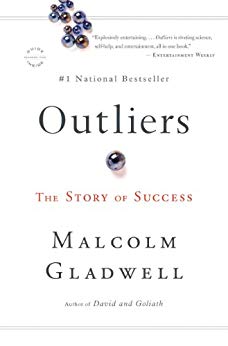

This article is an excerpt from the Shortform summary of "Outliers" by Malcolm Gladwell. Shortform has the world's best summaries of books you should be reading.
Like this article? Sign up for a free trial here .
What is a cultural legacy, in Malcolm Gladwell’s Outliers? Why does our culture from centuries ago leave a legacy that continues to affect us today? Learn the foundations of cultural legacy here.
Cultural Legacy
A cultural legacy is the inheritance of cultural traits that influence our success or failure. They are often determined by cultural practices from centuries ago that have been passed down through each generation. Acknowledging the weaknesses of our cultural legacy enables us to make positive changes that increase our chances at success.
For example, the safest airlines are often those from countries whose cultures do not value strict societal hierarchies.
- Plane crashes are more common in airlines from countries that value strict hierarchies. This cultural norm creates communication barriers, which prevent co-pilots from speaking up and challenging the authority of the pilot. This is a problem if the co-pilot notices that something is wrong, but can’t communicate this effectively to the pilot.
- Korean Air addressed a pattern of plane crashes resulting from culturally-driven communication difficulties by changing their language of communication and training subordinates to take a more active and assertive role in their position.
Talent is important, but talent alone can only take you so far. We need to be able to develop our talent, and while our work ethic may be part of our personalities, it is also influenced by our cultural legacy.
The cultures of our ancestors (even the aspects we no longer practice or ascribe to) influence our present-day behaviors.
Cultural Legacy Examples
Chapter 5 looked at the way Joe Flom’s Jewish culture provided him with several opportunities that paved his way to extraordinary success. Part Two takes an even deeper dive into the ways the legacies of our cultures foster or impede our success.
Gladwell looks at four distinct cultural legacies: the culture of honor in the American South, the culture of deference in Korea, the culture of hard work in Asian countries, and the challenge to the culture of western education at KIPP schools. Each example of cultural legacy shows that it matters where you’re from—not only geographically but also culturally.
In the case of Joe Flom, cultural legacy was a source of strength. But culturally legacies can also be a source of weakness.
We don’t like to call cultures out on their weaknesses—it feels too much like stereotyping.
But not acknowledging these cultural weaknesses from cultural legacies is dangerous. One that can be dangerous in certain situations is a high “power distance.”
Challenging Cultural Legacy: KIPP Academy
KIPP Academy in the South Bronx is an experimental, public middle school with an astonishing track record. It produces many, many outliers in low-income, underserved communities by creating opportunities for success. KIPP is now a nation-wide school network.
What Makes the KIPP Kids Outliers?
While only 16% of middle school students in the South Bronx are performing at or above their grade level, seventh-grade KIPP students are already learning high school algebra. By eighth grade, 84% of KIPP students are performing at or above their grade level.
What is the Secret to KIPP’s Success?
More time. Students attend school for longer periods of time both over the course of a day and over the course of the school year. We’ll see how this challenges cultural legacy later.
The KIPP school year extends into summer, and all students attend school from 7:45 am to 5:00 pm. Many students participate in extracurricular activities until 7:00 pm. This works out to a school day that contains 50-60% more learning time than a day at a traditional public school.
Extended time for learning allows for a more relaxed atmosphere in which students can question and struggle their way through problems at their own pace. Opportunities like this make school work meaningful.
The Cultural Legacy of Limited Class Time
A school structured like KIPP is a challenge to the American cultural legacy of the summer break. The American public school system was born out of an effort in the late 1800’s to reform a very haphazard collection of one-room school houses and overcrowded classrooms.
Early educators were concerned about the effects of providing too much schooling. They believed that “over-study” could lead to insanity, so they shortened the school day, eliminated Saturday classes, and developed the idea of a summer vacation.
(This prescribed alternation of periods of work and rest mirrors the work patterns of European farmers. 19th-century education reformers did not benefit from the cultural legacy of diligence.)
A Johns Hopkins study has demonstrated that math and reading scores of poor students drop over the summer while scores among wealthy students increase. This trend compounds over time.
Over the course of the school year, however, poorer students “outlearn” the wealthier students. Continuing school into the summer break enables students from poorer families to continue to learn rather than fall behind their wealthier peers. By extending learning time (and therefore opportunities), KIPP fights back against the cultural legacy that tells us that rest is more important to our ultimate success than diligence.
———End of Preview———

Like what you just read? Read the rest of the world's best summary of "Outliers" at Shortform . Learn the book's critical concepts in 20 minutes or less .
Here's what you'll find in our full Outliers summary :
- What makes some people outliers, and most others not
- Why some genius outliers end up failing in life
- Why Asians are good at math, and other curiosities of culture







On a spiritual level inspired me to rise …support the individual next to me